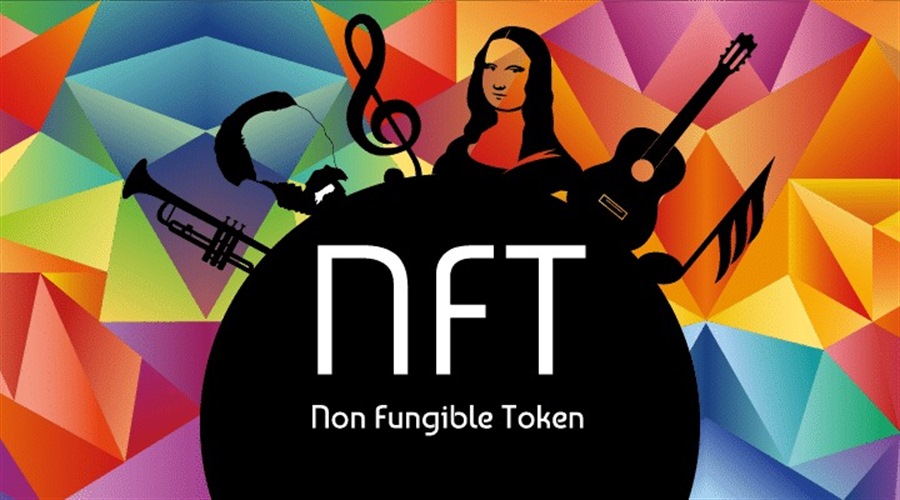There was a crypto furor at the start of February when BuzzFeed decided to run a piece in which it publicly revealed the identities of some of the creators of Bored Ape Yacht Club, who had up to that point operated pseudonymously.
Bored Ape Yacht Club attracts attention for being one of the most expensive, blue-chip and well known NFT collections.
BAYC’s creators hadn’t wanted to reveal their identities, nor had they done anything suspicious, and their project wasn’t running into any commercial or community problems. In fact, BAYC is flying. But, none of that seemed to matter as BuzzFeed apparently thought the BAYC team members’ real names were an issue worthy of serious journalistic investigation.
Looking back on events now, it feels as though the entire incident was just another example of the hostility that exists towards crypto, and towards NFTs most vociferously. Ideally, crypto should be politically neutral, but observationally, one can’t help but notice that animosity towards crypto tends to emanate from politically left-of-center sources. (Although this is certainly not always the case, with billionaire investor Charlie Munger recently likening crypto to a venereal disease).
Hostility from the left is explicable if you view the left as currently being more statist than the right, while the right is more libertarian. Crypto, after all, promises to separate money and state, and if that happens then the state exerts less control while personal liberty is strengthened.
Returning to the story at hand though, an investigation into who is behind Bored Ape Yacht Club is hardly a perilous operation. In fact, the main requirement was to look up who owned Yuga Labs, the registered company behind BAYC. This is publicly available information and anyone could have uncovered it without too much difficulty. In fact, I’d hazard that some people already had, perhaps out of curiosity, but hadn’t then felt any great need to broadcast their findings.
All in all, the whole affair isn’t much of a big deal. No one at Yuga Labs is involved in anything nefarious, and the most remarkable aspect of the story is nothing was uncovered by BuzzFeed, but rather that a large news platform bothered to run with it at all.
It’s unfortunate (and arguably unethical) that the creators of BAYC had their identities publicized when they preferred pseudonymity, but then again, balanced against the positive things they have achieved and acquired over the past year or so, a pointless doxing is negligible flak.
The incident does raise another point worth considering though. Specifically, why is pseudonymity so prevalent and fiercely guarded within the NFT world? And, related to that, is it still a good idea, or necessary, to remain in the shadows even as crypto and NFTs slide through mainstream awareness and closer to significant adoption?
Although Bitcoin is a public ledger, the value of anonymity is embedded within the crypto philosophy. Going back to the start, the gifted genius (or group) behind Bitcoin is known only as Satoshi Nakamoto , a pseudonym. And, having set things in motion, Satoshi, whoever he might be, has long since stepped away from his creation.
Crypto is a freedom project, and in its most idealistic form, it needn’t answer to authorities from either government or media, or anywhere else. It might not work out that perfectly when reality collides, but still, the ethos is always present.
Or to put it another way, if you don’t want to use a bank, then here’s a crypto alternative, and if you don’t want to tell me your name, then fine, go ahead and make up a new one, and I’ll call you that.
However, at the same time, some NFT projects are pulling in huge amounts of money and acting more like traditional investment opportunities. If NFTs, or projects utilizing and based around NFTs, move further towards the mainstream and aim for conventional adoption, then it’s probable that some will start to adopt conventional practices, such as displaying verifiable identities.
And, after all, although pseudonymity might be part of the culture, it’s not as though many NFT creators are relaying unspeakable truths from within regimes where to be doxed would result in physical danger.
On the contrary, they’re often to be found making cartoon JPEGs.
And, on top of that, crypto is notorious for scams and riskiness. Experienced NFT traders know how to spot red flags and take care to avoid sketchy-looking projects, but still sometimes suffer losses and may have had to learn the hard way how to avoid rip-offs.
When assessing a soon-to-launch NFT project, a team full of real names is neither expected nor requested, but at the same time, a self-doxed team provides a sense of security, names would likely be welcomed if offered, and the practice can certainly be beneficial.
If a project reaches a wider audience or is aiming to break through to the mainstream, then it makes good business sense to put names to the roadmap and take ownership of commitments. And, in a situation where the competition was already doxed, any new project might have to do the same in order to match up.
I wouldn’t like for crypto and NFTs to be subsumed by traditional conventions, but there will always be various kinds of projects taking different paths, and for which different methods are suitable. Where we are now in crypto, with awareness and use cases growing, being self-doxed might, for certain projects with particular ambitions, become a worthwhile approach.






















